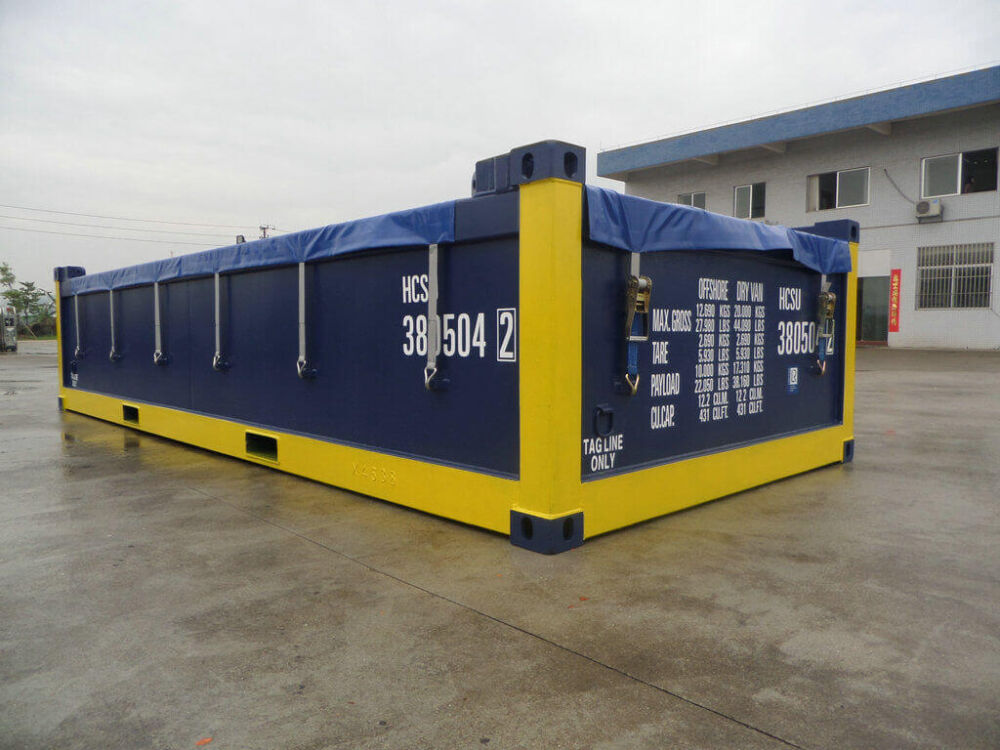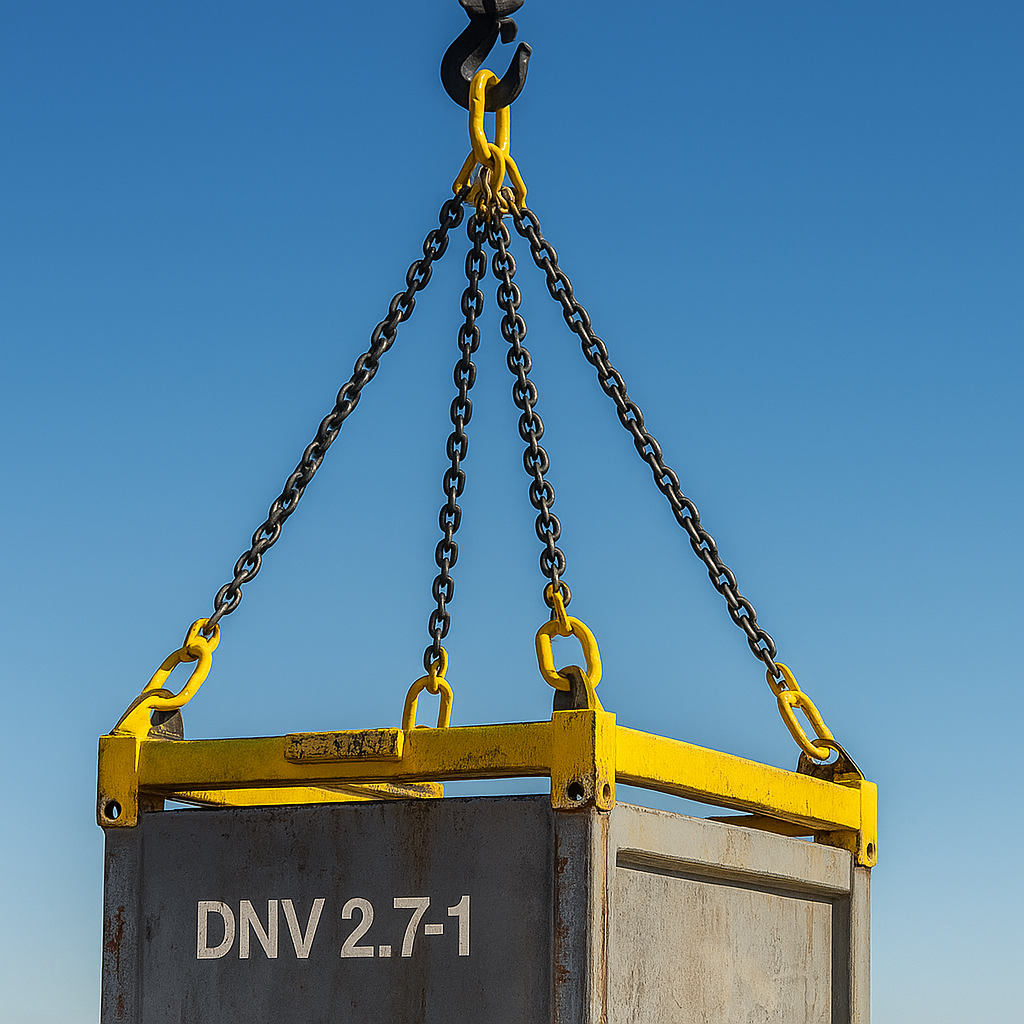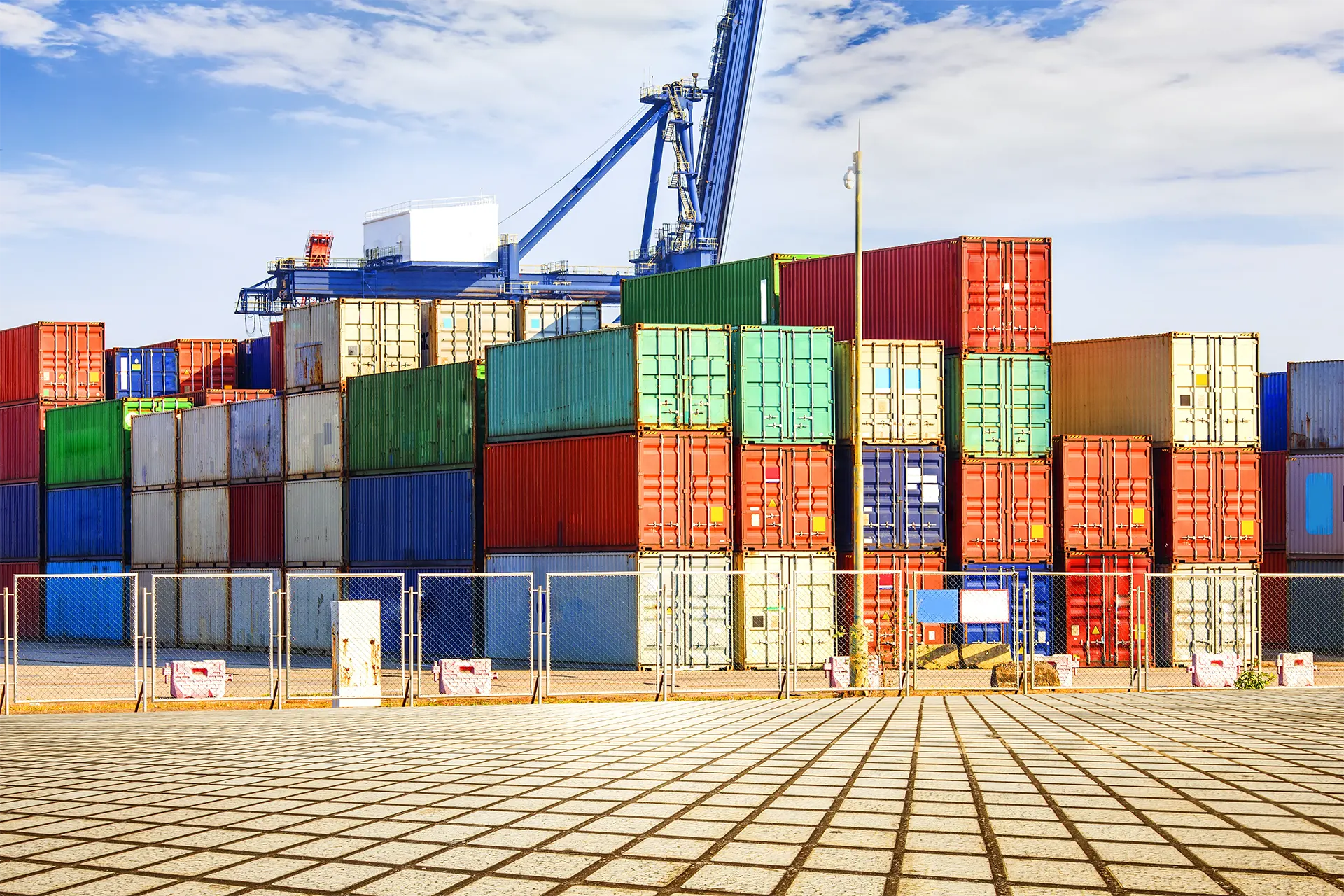When you are working in offshore environments, choosing the right container or cabin is not just about size and shape. It is also about safety. Two important certifications that often come up in the offshore world are DNV 2.7-1 and A60. While they serve different purposes, both are essential depending on how and where you plan to use your unit.
Let us break down the difference between these certifications and help you decide which one you need.
What is DNV Certification?
DNV 2.7-1 is a global safety standard set by Det Norske Veritas (now DNV). It focuses on the structural safety of offshore containers.
This certification ensures that the container can be lifted, moved, and used safely in hazardous offshore zones, classified by ATEX mainly in the oil and gas industry, chemical plants, and energy platforms where explosive atmospheres are present.
What does DNV 2.7-1 cover?
- The overall strength of the container
- Safe lifting points
- Stability during offshore transport
- Resistance to weather, movement, and impact
It applies to units like cargo carrying units (CCUs), baskets, skids, and other transport containers.
What is A60 Certification?
A60 is a fire protection standard for offshore and marine applications. It is defined by the International Maritime Organization (IMO) and SOLAS (Safety of Life at Sea) regulations.
A60 means the structure can withstand fire exposure for at least 60 minutes, keeping the inside safe and insulated.
This certification is important for living spaces or control rooms offshore, where people or sensitive equipment need protection from fire.
What does A60 cover?
- Fire-resistant insulation
- Heat protection
- Safe design for emergency situations
A60 is usually applied to accommodation units, control cabins, mud logging cabins, and other habitable or technical spaces.
3. Key Differences Between A60 and DNV Certification
| Feature | DNV 2.7-1 | A60 |
| Focus | Structural safety & handling | Fire protection |
| Applies To | Cargo containers, baskets, CCUs | Habitable/control modules |
| Regulation Body | DNV (now DNV-GL) | IMO / SOLAS / Class societies |
| Certification Includes | Lifting points, structure, sling sets | Fire insulation, structural integrity under heat |
| Use Case | Lifting cargo offshore safely, explosion proof | Protecting personnel and equipment from fire hazards |
When Do You Need DNV Certification?
When Do You Need DNV Certification?
If your operation involves lifting heavy cargo to and from offshore platforms, DNV certification is a must. It ensures structural safety, proper lifting standards, and is often required for equipment used in explosion proof or hazardous environments.
You will need it when:
- The container is used in offshore transport
- You work in harsh sea conditions
- You want to meet the oil and gas industry standards
It ensures your unit is built to handle rough handling, strong winds, and the challenges of marine environments.
When Do You Need A60 Certification?
If your container or module will have people working inside or critical systems running, A60 is important.
You will need it when:
- The space is meant for accommodation or control operations
- There is a fire risk in the area
- Your client or industry requires fire-rated enclosures
A60 certification gives peace of mind when safety is non-negotiable.
Can a Container Be Both A60 and DNV Certified?
Yes, and in many offshore projects, it is ideal to have both.
For example, a control cabin can be A60-rated for fire protection and also DNV-certified for offshore transport.
This kind of dual certification is useful when:
- The unit needs to be lifted offshore
- It is used in high-risk zones
- You want the highest safety and compliance standards
While this can increase the cost, it adds a lot of value in terms of safety, compliance, and long-term reliability.
Choosing the Right Certification for Your Operation
Here are some quick questions to ask before you decide:
- Is the unit meant for cargo or people?
- Will it be used in a fire-prone area?
- Does it need to be lifted offshore?
- What does the client or project specification demand?
Talking to an expert supplier like Al Basata can help you find the best fit. Whether you need a DNV container, an A60 cabin, or both in one unit — Al Basata can guide you through the options.
Conclusion
Both certifications serve different purposes:
- DNV 2.7-1 ensures structural strength and offshore safety
- A60 protects people and equipment from fire
Choosing the right one (or both) depends on how and where your container will be used. Do not assume one certification covers everything. Instead, plan for safety from both structural and fire risks.
If you are unsure which container suits your project best, talk to Al Basata. Our team can help you choose containers that are fully certified, reliable, and built to last — so your offshore operations stay safe and efficient.




